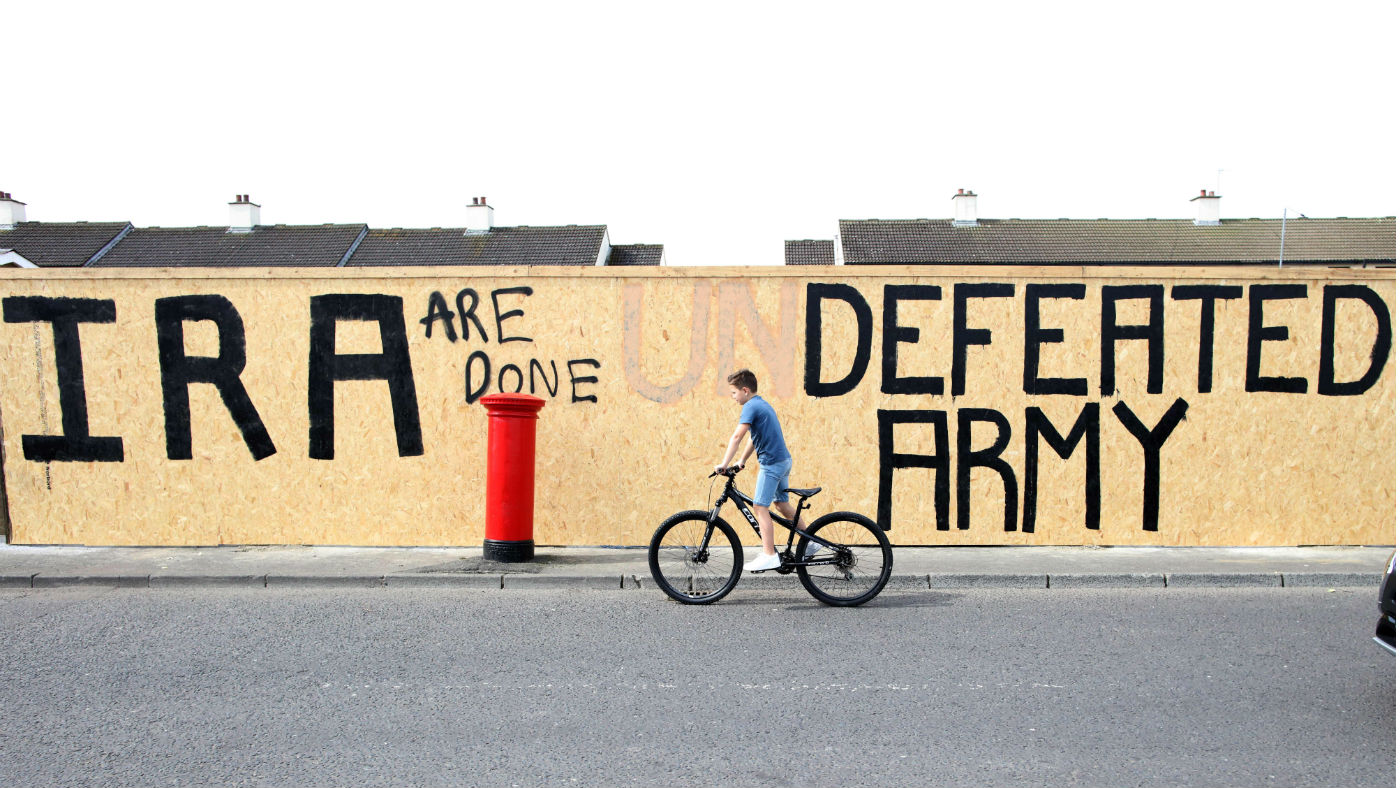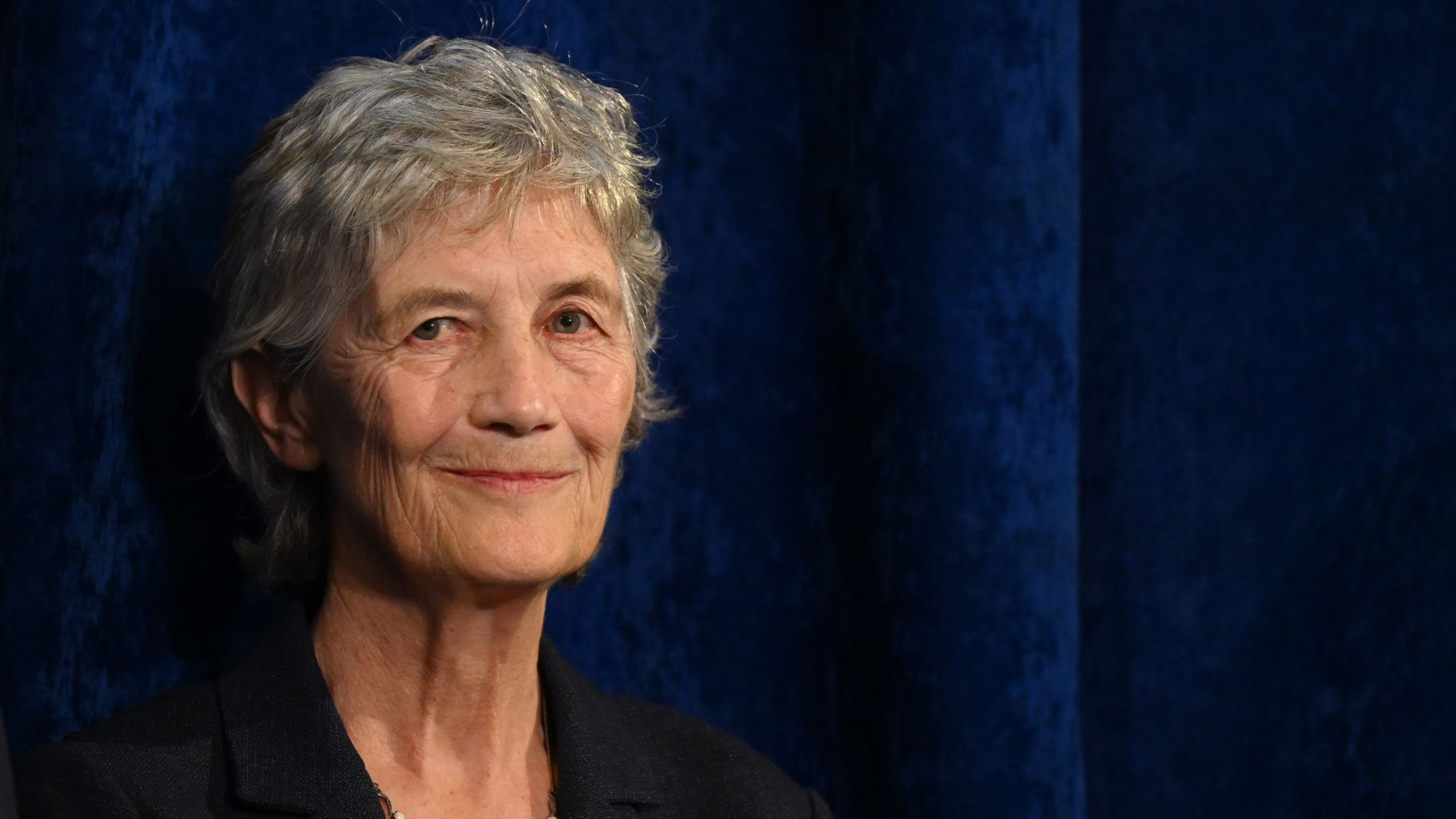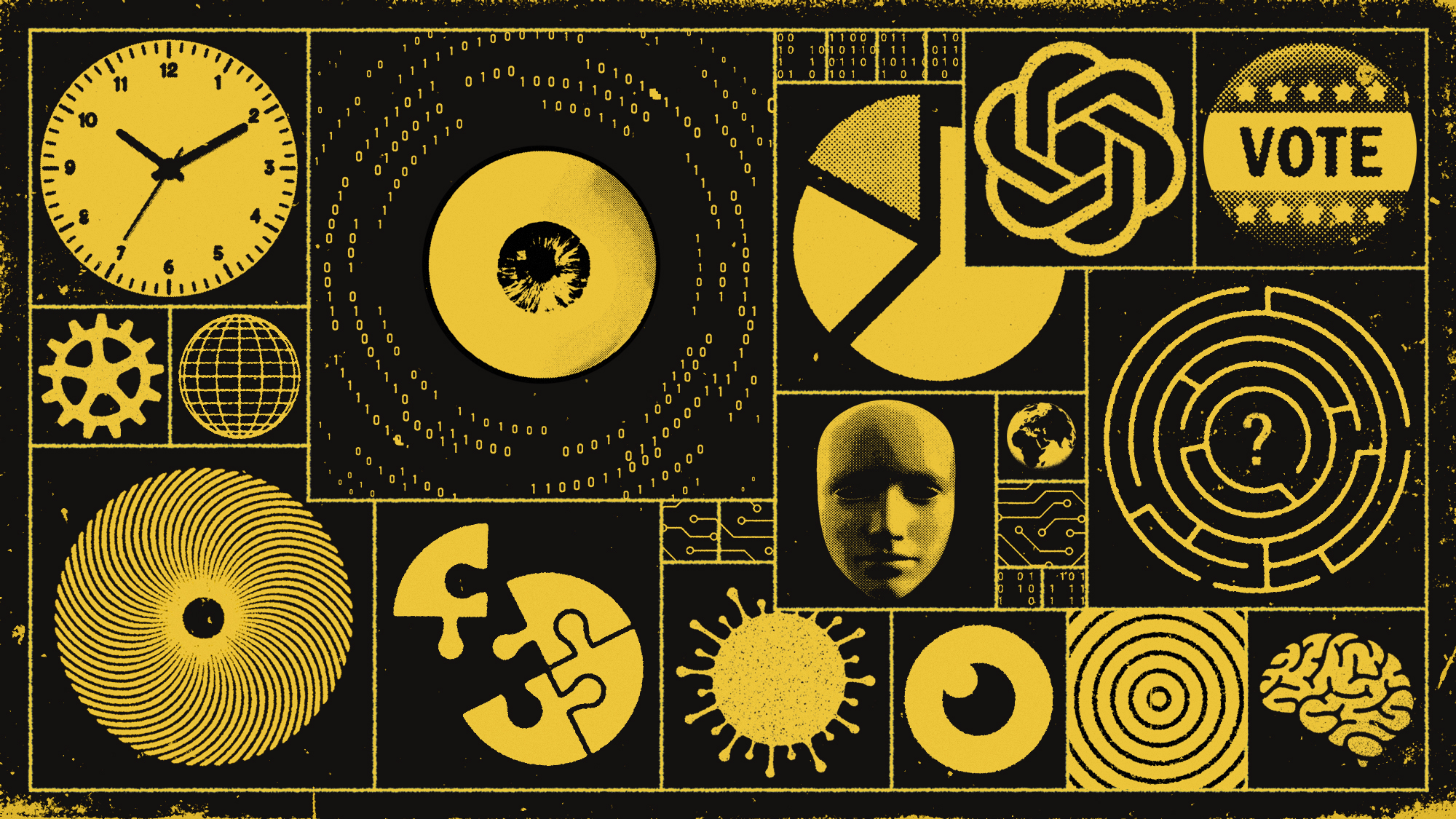New IRA says Brexit is an ‘opportunity’
Paramilitary group says EU exit has put ‘border back on the agenda’

A free daily email with the biggest news stories of the day – and the best features from TheWeek.com
You are now subscribed
Your newsletter sign-up was successful
The New IRA, which claimed responsibility for the murder of a young journalist in Londonderry last week, says Brexit has given it a chance to recruit new supporters.
In an interview with The Sunday Times, the New IRA’s army council said: “Brexit has forced the IRA to refocus and has underlined how Ireland remains partitioned. It would be remiss of us not to capitalise on the opportunity.
“It’s put the border on the agenda again.”
The Week
Escape your echo chamber. Get the facts behind the news, plus analysis from multiple perspectives.

Sign up for The Week's Free Newsletters
From our morning news briefing to a weekly Good News Newsletter, get the best of The Week delivered directly to your inbox.
From our morning news briefing to a weekly Good News Newsletter, get the best of The Week delivered directly to your inbox.
The paramilitary organisation is one of a small number of groups that opposes the 1998 Good Friday Agreement, which brought peace to Northern Ireland after nearly three decades of violence. It was formed in 2012 after three of the four main militant nationalist groups merged.
The New IRA said the shooting of 29-year-old journalist Lyra McKee ten days ago was an accident that occurred in the midst of a riot and described her death as “shocking” and “something that did nothing to further any cause”.
Reuters reports that “the killing, which followed a large car bomb in Londonderry in January that police also blamed on the New IRA, has raised fears that small marginalised militant groups are exploiting a political vacuum in the province and tensions caused by Britain’s decision to leave the European Union”.
McKee’s death has increased pressure on Northern Irish politicians from voters and governments in London and Ireland to re-establish the devolved government that is central to the province’s peace agreement.
A free daily email with the biggest news stories of the day – and the best features from TheWeek.com
“Brexit-fuelled uncertainty over Northern Ireland’s border with the Republic of Ireland and its future within the UK have hampered efforts to restore devolved government,” says The Guardian, “leaving civil servants to run what some have called a ‘zombified’ administration.”
It has been over two years since Irish nationalists Sinn Fein withdrew from the compulsory power-sharing government with the pro-British Democratic Unionist Party (DUP).
“We are leaving far too much wide open space for other kinds of voices that don’t believe in democracy, that peddle hate and fear,” Irish Foreign Minister Simon Coveney told a joint news conference with Britain’s Northern Ireland Secretary Karen Bradley.
Talks are now set to begin on 7 May, five days after local elections, and will involve all the main political parties in Northern Ireland, together with the UK and Irish governments, a statement from Downing Street said.
“There's no doubt without [McKee’s] death this announcement of a new talks process would not have happened,” the BBC reports, “and in no other circumstances would a process be beginning in the three-week run up to what will be a hotly contested European election”.
SDLP leader Colum Eastwood fired the opening shot of the campaign by saying Northern Ireland must use the European elections on 23 May as a “people’s vote” on Brexit.
“This is no ordinary election,” he told The Independent, “this is a battle about remain versus leave. This is the North’s people’s vote. This is our opportunity to say that we’re not having Brexit, and we’re definitely not having a hard border.
“We need to send a message to London, because Brussels is already behind us” he added.
-
 Can Europe regain its digital sovereignty?
Can Europe regain its digital sovereignty?Today’s Big Question EU is trying to reduce reliance on US Big Tech and cloud computing in face of hostile Donald Trump, but lack of comparable alternatives remains a worry
-
 The Mandelson files: Labour Svengali’s parting gift to Starmer
The Mandelson files: Labour Svengali’s parting gift to StarmerThe Explainer Texts and emails about Mandelson’s appointment as US ambassador could fuel biggest political scandal ‘for a generation’
-
 Magazine printables - February 13, 2026
Magazine printables - February 13, 2026Puzzle and Quizzes Magazine printables - February 13, 2026
-
 The high street: Britain’s next political battleground?
The high street: Britain’s next political battleground?In the Spotlight Mass closure of shops and influx of organised crime are fuelling voter anger, and offer an opening for Reform UK
-
 Biggest political break-ups and make-ups of 2025
Biggest political break-ups and make-ups of 2025The Explainer From Trump and Musk to the UK and the EU, Christmas wouldn’t be Christmas without a round-up of the year’s relationship drama
-
 ‘The menu’s other highlights smack of the surreal’
‘The menu’s other highlights smack of the surreal’Instant Opinion Opinion, comment and editorials of the day
-
 Is a Reform-Tory pact becoming more likely?
Is a Reform-Tory pact becoming more likely?Today’s Big Question Nigel Farage’s party is ahead in the polls but still falls well short of a Commons majority, while Conservatives are still losing MPs to Reform
-
 Meet Ireland’s new socialist president
Meet Ireland’s new socialist presidentIn the Spotlight Landslide victory of former barrister and ‘outsider’ Catherine Connolly could ‘mark a turning point’ in anti-establishment politics
-
 Believe it when AI see it: is this a deepfake turning point in politics?
Believe it when AI see it: is this a deepfake turning point in politics?Today’s Big Question AI ‘slopaganda’ is becoming a ‘feature’ of modern elections
-
 Taking the low road: why the SNP is still standing strong
Taking the low road: why the SNP is still standing strongTalking Point Party is on track for a fifth consecutive victory in May’s Holyrood election, despite controversies and plummeting support
-
 Is Britain turning into ‘Trump’s America’?
Is Britain turning into ‘Trump’s America’?Today’s Big Question Direction of UK politics reflects influence and funding from across the pond